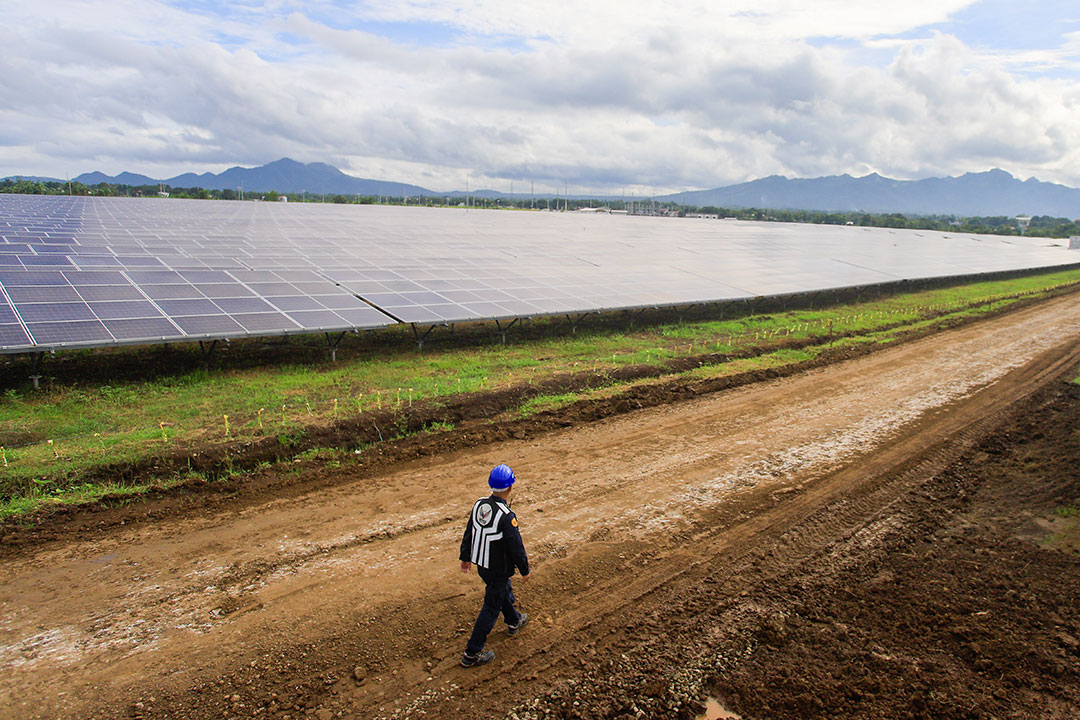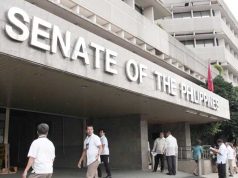Philippines faces skill gap as green economy push gains pace

By Patricia B. Mirasol, Multimedia Producer
BUSINESSES and policymakers face a widening gap between the demand for skilled labor and the workforce’s readiness to fill green jobs, as the Philippines accelerates its transition to a green economy.
Industry leaders and government officials warn that unless the country scales up training programs, the promise of economic growth from renewable energy, electric vehicles and sustainable construction could be undermined by the lack of qualified workers.
“Are we ready for these changes?” Francis A. Macatulad, program director at the Asia Society for Social Improvement and Sustainable Transformation (ASSIST), a nonprofit that promotes capacity-building and sustainable practices, told BusinessWorld in a virtual interview. “Unfortunately, we are not. We don’t have the technicians.”
His warning underscores a structural challenge for Southeast Asia’s second-most-populous nation.
As climate change reshapes economies worldwide, the Philippines is under pressure to retrofit aging infrastructure, decarbonize energy systems and adopt greener modes of transportation. But the country is still scrambling to align its workforce with those demands.
The World Economic Forum projects that green and energy-transition roles such as renewable energy engineers and electric vehicle specialists will be among the fastest-growing job categories in the coming years.
The International Labour Organization (ILO) estimates that the shift to a green economy could create 24 million jobs globally by 2030.
The Asia-Pacific region is particularly exposed, with 43% of its workforce considered vulnerable to climate-related shocks and the disruptions from decarbonization, according to the ILO. For the Philippines, where millions of workers remain in carbon-intensive or informal industries, the transition risks leaving many behind without targeted support.
Labor Undersecretary Carmela I. Torres said the government is working to balance the creation of green jobs with inevitable losses in traditional industries such as coal and fossil fuel-based transportation.
“The transition to a green economy should be just and inclusive, ensuring that workers in traditional industries are not left behind,” she said in an e-mailed reply to questions. “This aims to shift towards environmentally friendly practices while ensuring the creation of decent work opportunities and addressing social inequalities.”
Still, she acknowledged persistent challenges: gaps in training programs, limited funding, and the lack of awareness among workers and employers about opportunities in the green sector.
Some of the country’s biggest companies are trying to bridge the gap by embedding sustainability across their organizations.
Ayala Corp., one of the Philippines’ oldest business groups, ensures its sustainability agenda extends beyond dedicated teams.
“Our corporate strategy, business development, investor relations, and treasury teams, among others, are updated on the latest and most relevant thinking in sustainability to ensure that it is embedded into our long-term planning and investments,” Francisco R. Milan, Ayala’s chief human resources officer, said in an e-mailed reply to questions.
Ayala Land, Inc., the group’s property arm, hosts quarterly forums on topics such as decarbonization, regenerative design and water resource management. Globe Telecom, Inc., meanwhile, launched an online Sustainability Academy in 2021 to help its 8,000 employees adopt sustainable practices at home and at work.
“Across the group, sustainability and human resource teams are working closely to identify ways to more widely embed the value of sustainability among all employees,” Mr. Milan said.
The Aboitiz Group has also made sustainability central to its real estate and infrastructure ventures. Aboitiz InfraCapital, Inc.’s economic estates, including Lima Estate in Batangas, have earned a five-star Building for Ecologically Responsive Design Excellence (BERDE) district certification. It features a sustainability hub with a waste-to-eco brick facility, rainwater harvesting and compost-to-fertilizer systems.
“It’s about shifting how everyone in the organization thinks about placemaking and future-proofing for the new economy,” Monica L. Trajano, vice-president for business development at Aboitiz unit LIMA Land, Inc., told BusinessWorld in an interview.
“We must be able to integrate agility and innovation as we emphasize sustainability and best practices,” she added.
Working with urban planning consultants such as Singapore-based Surbana Jurong Pte Ltd., Aboitiz has identified specific workforce gaps in renewable energy and sustainable construction. “There is a skill gap in practical areas like installation, maintenance, repair and even the basic knowledge in sustainable construction,” Ms. Trajano said.
‘MINDSET SHIFT’
While infrastructure upgrades are critical, advocates stress that behavior change is just as important.
“Designing green is the easiest part,” Christopher C. de la Cruz, chief executive officer at the Philippine Green Building Council, said in an interview. “Staying green is the biggest problem.”
He noted that even the most energy-efficient systems are wasted if occupants use them improperly. “It’s a mindset shift.”
The council administers the BERDE green building rating system and partners with organizations such as the Philippine Business for Education to develop training programs. It also works with universities like the University of San Carlos in Cebu to update curricula so graduates are equipped with green skills from the outset.
Green jobs are for everyone — including janitors, messengers, and plumbers, Mr. De la Cruz said. “If you’re able to transition your work today into a cleaner kind of work that contributes [to mitigating] the climate crisis, then it’s a green job.”
Nonprofit groups are stepping in to address the training deficit. ASSIST, for example, works with technical-vocational associations in Mindanao and Metro Manila to give instructors updated training materials.
It has also established an advisory committee with the Technical Education and Skills Development Authority (TESDA) and chambers of commerce to identify skill gaps.
“We are upskilling the current tech-voc students, or in some cases reskilling technicians to be able to work with the new technologies,” Mr. Macatulad said.
The Philippines already has a legislative framework in place. The Green Jobs Act of 2016 seeks to identify skill needs, train and certify workers and provide financial support including tax deductions for green-skill programs.
The Labor department and TESDA have also issued a joint memo to strengthen career guidance and training alignment with industry needs.
“Efforts such as those by TESDA are crucial for developing a workforce capable of meeting these demands,” Ms. Torres said. “Both public and private sector investments are needed to support the development of a robust green job training ecosystem.”
For the private sector, investment in education is vital to long-term competitiveness.
“We recognize that no single institution or the private sector acting alone can produce the necessary talent at scale,” Mr. Milan said. Government investment in education is critical so Philippine schools can produce a workforce that supports the drive of industries for sustainability, he added.
Aboitiz’s Ms. Trajano called the skill gap both a challenge and an opportunity.
“Our biggest opportunity as a country is our labor force, and we really must focus on that, with the public and private sectors working together,” she said. “The skill gap is also our biggest opportunity in terms of influencing the quality of our educational institutions.”
As the Philippines braces for the impacts of climate change — rising sea levels, stronger typhoons, and disrupted agricultural cycles — building a workforce ready for the green economy has become more than an economic necessity.
The Philippines is in a race against time. “There are a lot of projects that will be coming on stream very soon, and they need technicians,” Mr. Macatulad said.



